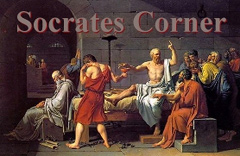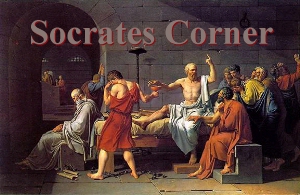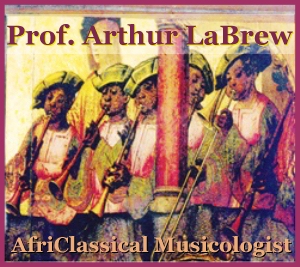On Dante’s Divine Comedy and the evil of neutrality
The hottest places in hell are reserved for those who, in times of great moral crisis, maintain their neutrality.
~ Dante
Biography
Dante Alighieri (c. 1265–1321), was the foremost Italian poet of the Middle Ages. His epic poem, Divine Comedy, is universally considered the greatest literary work composed in the Italian language and a classic of world literature where he is called, “the Father of the Italian language.” Dante is also referred to as il Sommo Poeta (“the Supreme Poet”) and il Poeta. In his native Italy Dante, along with Petrarch, and Boccaccio were also called, “the three fountains” and “the three crowns.”
Dante lived during very turbulent times; Italy was not yet the singular country we know today but a collection of independent, often warring “Republics” also called city-states. Dante, similar to many Florentines of his times, was entangled in the Guelph (‘White’) – Ghibelline (‘Black’) Wars. Afterwards he later became a pharmacist to enhance his political career and gained admission to the Apothecaries’ Guild though he had no intention of being a practicing pharmacist. This profession was not as unsuitable as it sounds because during this period apothecaries’ shops often doubled as local bookstores, so Dante had the time to become a very literary person. As a politician his career was unremarkable, but he held several offices over some years in a city full of political discontent and infighting. This was the historical-political circumstances that established background and ideas of Dante’s magnum opus, Divine Comedy – by mingling religion, history and political issues in his writings, he raised the most severe anger of God against his city of Florence, naming several specific people with inflammatory contempt as his personal enemies.
The Divine Comedy is a classic, epic poem written by Dante between c. 1308 and his death in 1321. It is commonly thought of as the most outstanding work of Italian literature and is viewed as one of the greatest works of world literature. The poem’s visionary and allegorical idea of the spirit world is demonstrative of medieval theology as established in the Catholic Church by the 14th century. The poem created the Tuscan dialect in which it is written establishing it as the standard Italian language. The poem is divided into three parts: Inferno, Purgatorio, and Paradiso.
To guide him on his epic journey Dante summons his literary countrymen from antiquity, Virgil (70–19 B.C.). Outward, the poem chronicles Dante’s explorations through Hell, Purgatory, and Heaven; but on a deeper level, it denotes, allegorically, the soul’s passage through these realms towards God. On this intense level, Dante frequently borrows from conventional medieval Christian theology and philosophy, especially Thomistic philosophy and the Summa Theologica of Thomas Aquinas.
Common Themes
The Divine Comedy is basically an allegory, which is a rhetorical method in which characters or events in a literary, pictorial, or aesthetic art form portray or symbolize ideas and ideals. Allegory, particular in the Middle Ages Dante lived in, was a dynamic aspect in the synthesis of biblical and classical traditions into what would come to define medieval culture. People during the Middle Ages held a worldview that consciously borrowed from the cultural traditions of antiquity forming their institutions and concepts, therefore allegory in medieval literature and medieval art was a principal force for the fusion and transformational connection between the ancient world and the “new” Christian world. For Dante especially, each Canto chronicled various incidents and contained many different outcomes. Yet Dante’s allegories are complex and intricate, in detailing in what way to read the poem, therefore he uses other rhetorical devises beyond the allegory including – the historical, the moral, the literal, and the anagogical (relating to future or prophetic events).
Similarly, the themes of Dante’s poem are very intricate, with mathematical and numerological complexities contained throughout the work, predominantly threes and nines, which are connected to the Holy Trinity. The poem is frequently acclaimed for its profound insights into the psychological complexities of human nature. Dante’s ingenious and unique portrayals of the characters he encounters in Hell, Purgatory, and Paradise; his acrimonious accusations of leading citizens of Florence and Italian politics; and his commanding poetic creativity are second to none. Dante’s practice of displaying actual characters allows Dante the liberty of not having to include the reader in explanation, and lets him “[make] room in his poem for the discussion of a great many subjects of the utmost importance, thus widening its range and increasing its variety,” according to Dorothy Sayers in the Introduction to her 1955 book titled, Hell.
Another recurring theme of Dante, particularly during his constant perils of Inferno, is where he borrows from Aquinas’ ideas on necessity and contingency. Aquinas wrote, “All creatures before they existed, were possible” – and in this sense contingent as regards their being, not necessary. “As it was in the Creator’s power to produce them before they existed in themselves so likewise is it in the Creator’s power when they exist in themselves to bring them to nothing.” God preserves them in being, Aquinas says, “by ever giving them existence,” for “if He took away His action from them, all things would be reduced to nothing.” This passage demonstrates the pre-existent nature God which so moved Aquinas and Dante and is reminiscent of the Old Testament prophet Jeremiah 1:5: “Before I formed thee in the belly I knew thee; and before thou camest forth out of the womb I sanctified thee, and I ordained thee a prophet unto the nations.”
Scientific themes
Even though the Divine Comedy is mainly a religious poem, discoursing about sin, virtue, and theology, Dante also deliberates about several fundamentals elements of the science of his day which has instigated both praise and criticism of his work over the centuries. On this point, the Purgatorio frequently mentions the effects of a spherical Earth, such as the diverse stars observable in the southern hemisphere, the different position of the sun, and the numerous time zones of the Earth whereby two people standing on two different places on earth can observe two totally different cosmic phenomena. Dante writes:
Just as, there where its Maker shed His blood,
the sun shed its first rays, and Ebro lay
beneath high Libra, and the ninth hour’s rays
were scorching Ganges’ waves; so here, the sun
stood at the point of day’s departure when
God’s angel – happy – showed himself to us.
Dante’s odyssey takes him through the center of the Earth in the Inferno, which conventional thought in the Middle Ages thought was the biblical Hell, and descriptions on the subsequent variation in the motion of gravity in Canto XXXIV (lines 76–120). Previously (XXXIII, 102–105), Dante questions the existence of wind in the frozen inner circle of hell, as it has no temperature variation. Inevitably, due to the location, the Paradiso converses expansively about astronomy, but following the cosmos of Ptolemy using the concentric circles of the heavens. The Paradiso also discusses the prominence of the experimental method in science, with a comprehensive illustration in lines 94–105 of Canto II:
Yet an experiment, were you to try it,
could free you from your cavil and the source
of your arts’ course springs from experiment.
Taking three mirrors, place a pair of them
at equal distance from you; set the third
midway between those two, but farther back.
Then, turning toward them, at your back have placed
a light that kindles those three mirrors and
returns to you, reflected by them all.
Although the image in the farthest glass
will be of lesser size, there you will see
that it must match the brightness of the rest.
A transitory illustration ensues in Canto XV of the Purgatorio (lines 16–21), where Dante states that both theory and experiment authorize that the angle of incidence is equal to the angle of reflection. Other references to science in the Paradiso include descriptions of clockwork in Canto XXIV (lines 13–18), and Thales’ theorem about triangles in Canto XIII (lines 101–102). Legendary Italian inventor, Galileo Galilei, is known to have taught extensively on the Inferno, and it has been advocated that the poem perhaps have influenced many of Galileo’s own concepts and designs concerning mechanical engineering.
What Dante teaches civilization today?
Are the writings of Dante written over 700 years ago, relevant to our modern society in the twenty first century? In the book, The Great Ideas: A Syntopicon, brings to mind the chapter, Custom and Convention, where the writer states, Conflicting moral principles raise many problems regarding what it is right for men to do or good for them to seek; yet I argue that prior to the apotheosis of the Progressive Revolution it was conceded even among the Left and Right that good must be established on reason and natural law. The writer continues, “For them the facts of human nature or the intuitions of reason will ultimately decide the points in issue. However far apart Plato and Aristotle, Aquinas, [Dante] and Hegel, Kant and Mill may be in their conceptions or analyses or the right and the good, they stand together, at least negatively, on the question of how their disputes can be resolved”: not by appealing to the customs and conventions of the tribe (tribalism – survival of the fittest), not in reliance on the conventions of the public as political policy (conventionalism – fundamental principles are grounded on agreements [“consensus”] in society), not by letting the customs of the majority dictate to the minority (majoritarianism-tyranny of the majority).
Dante, in his epic poem Divine Comedy, was seemingly of the same mind that, “On one belief, public manners are conventional determinations of moral principles or they are sometimes violations of them, just as positive laws are either determinations or violations of natural law.” Therefore on issues of principle: good and evil, right and wrong, necessity and contingency, convention and truth, there could be no compromise prompting Dante to write that, “The hottest places in hell are reserved for those who, in times of great moral crisis, maintain their neutrality.” Indeed humanity throughout the ages have had to grapple with an existential war between good and evil and our era is no different.
The only difference is our response to evil: Will we be pacifists and not fight in the midst of war declared against America and Christian civilization by ISIS? Will we remain disinterest bystanders and watch all of what our forefathers built with their blood and treasure be destroyed by socialists and progressives? Will we try to appease our enemies as British Prime Minister Neville Chamberlain tried and failed to appease Adolph Hitler and the Nazis thus precipitating WWII? Will we be compromised and proclaim our neutrality in the face of naked evil by corrupt politicians, self-righteous journalists and compromised judges? Or will we put on the courageous mantle of Dante and his companion, Virgil learning what they already realized before the opening lines of the Inferno were revealed – “The path to Paradise begins in Hell.”
*N.B.: This essay is based in part on ideas from Great Books of the Western World, Robert Maynard Hutchins, Editor-in-Chief (University of Chicago, 1952), Vol. 1, Chap. 14 – Custom and Convention; Vol. 2, Chap. 61 – Necessity and Contingency, Vol. 21 – Dante.
Book Notice
It’s been 5 years since publishing my last book and now I’ve published two new volumes – THE PROGRESSIVE REVOLUTION (University Press of America, 2013):
Vol. 1 @ https://rowman.com/ISBN/9780761861102
Vol. 2 @ https://rowman.com/ISBN/9780761861126
However, before the book is officially released to the public I have to place 100 pre-publication orders (50 orders per each volume). I need your help to make this happen ASAP. Please place your order today for volumes 1 & 2. Of course if you can order all 100 copies today, the book will become official tomorrow.
Please circulate this flyer to all your email contacts & Facebook/Twitter followers who may be interested in reading this opus. Thanks in advance to all my friends, associates and colleagues for your valuable support!
I am starting a new a program on my blog dedicated to giving young conservatives (ages 14-35) a regular place to display and publish their ideas called Socrates Corner. If you know of any young person who wants to publish their ideas on any subject, have them send their essay manuscripts to my email atewashington@wnd.com.
© Ellis Washington
Category: Commentary







